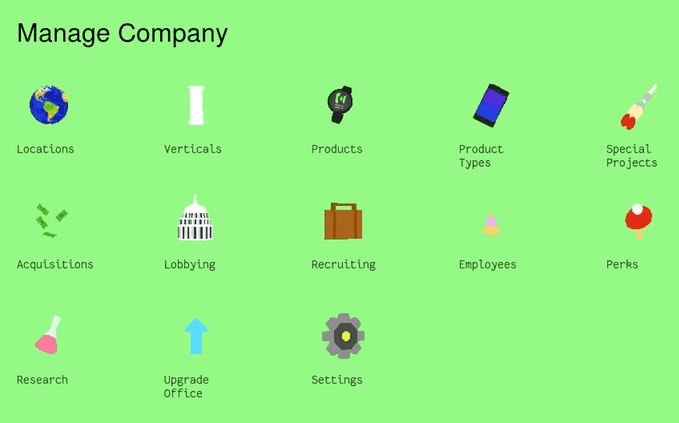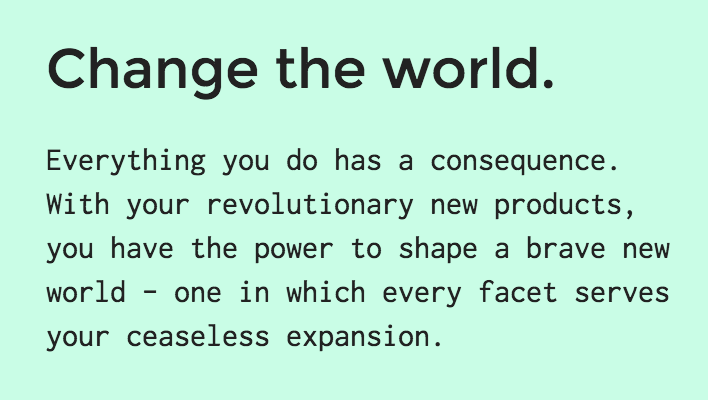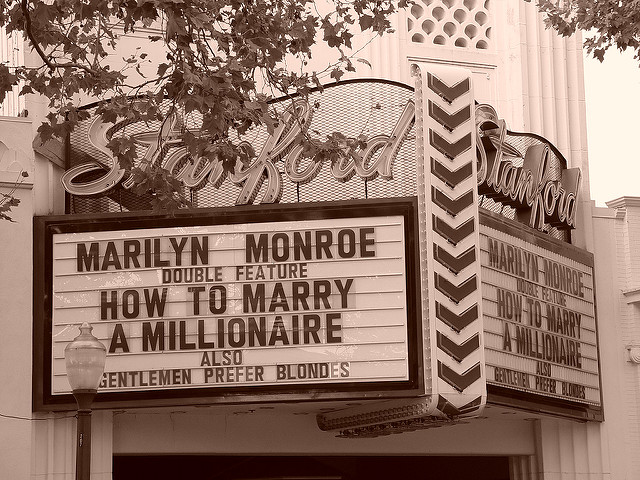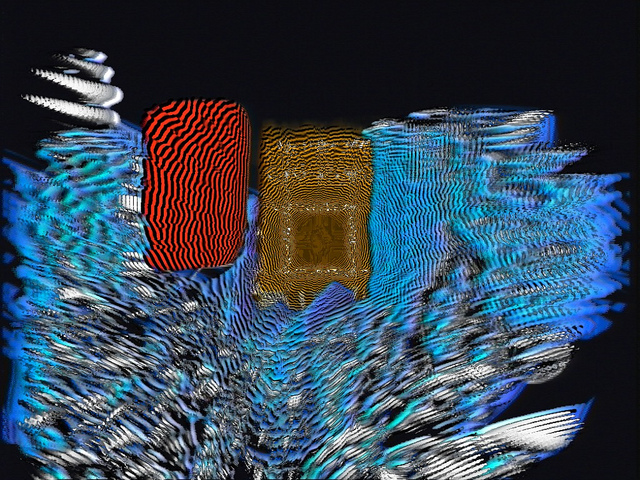“The artists opt to break the artificial world apart instead, and they take their destruction seriously.” — Miles Klee on glitch art
Julia pulled on her gloves carefully, making sure that the razor blades mounted on the palms were attached firmly. This was a simulation, naturally — what wasn’t a simulation? But it was a deeper sim than the ones you could buy per minute at shopping malls (next to the candy machines and phalanxes of massage chairs). This method wasn’t cutting edge, per se, because presumably all the best tech was sequestered in experimental military installs. However, it was better than the dreck on the enterprise market.
Harvey had done a year of painstaking work to build this tool for her, using open-source code to cobble together a neuro interpretation engine and the corresponding interface. Their collective’s main investor had gotten very impatient with Harvey’s pace of progress, and Julia still resented that the project lead hadn’t tried harder to shield them.
Back in October, after a tense meeting with the money men, Anthony had yelled at Harvey, “You’re the operations team! Your job is to make things go fast!”
“No,” Harvey had replied, calmly. “That’s what product does. We make things go smoothly.” Of course, the product engineers weren’t outputting as quickly as Anthony wanted either. They didn’t finish the enviro until a few weeks before Harvey sent his own code to QA. Julia had insisted on a QA phase.
During that October confrontation, Julia had screamed that Anthony didn’t care about quality or safety and the discussion devolved from there. Now she slightly regretted her own part in that conflict, but Julia was the one risking her life by using a tool that Anthony ultimately shipped because of deadline pressure. She trusted Harvey implicitly — they couldn’t collaborate if that weren’t the case — but Julia was still nervous.
She flexed her hands in the razor gloves. They were a bit ridiculous, but Harvey thought they’d suit her personality. The sim wasn’t complete, so Julia didn’t feel grey neoprene moving against her real skin, but her brain was convinced by the image. She took a couple of steps forward, waving her hands in front of her. The lines of light hooked on the palm blades and pulled away, revealing an under-layer of… more light. Hmm. At least the enviro had accepted her. Julia imagined seeing the data split to flow around her body, rippling digits, but it was actually more like navigating an REM dreamscape than that old movie, The Matrix. Moving didn’t feel normal, like physical life — maybe the gravity settings should be tweaked — but it didn’t feel totally faked either.
Julia was supposed to monitor her mental reactions, watching out for signs that her brain was reacting badly to immersion. She kept walking toward the bright tunnel. This is cool, she thought, but pretty fucking inefficient. The sim should drop me right in front of the intel station. It would get so annoying when you have to work but they send you through this pretty-for-nothing tunnel.
The posters on the walls of the tunnel all read “ONBOARDING TIPS HERE” but the product team was waiting to hear Julia’s evaluation before they decided what to write. She emerged from the tunnel’s mouth and looked at the intel station. It was obvious where she was supposed to stand because footprint shapes glowed on the ground. “I still think this looks like a dance arcade knockoff from the 2000s,” she said out loud, knowing that the eng team was watching her on 3D screens in the office. This is what happens when you let game designers make professional tools, Julia thought, exasperated again.





